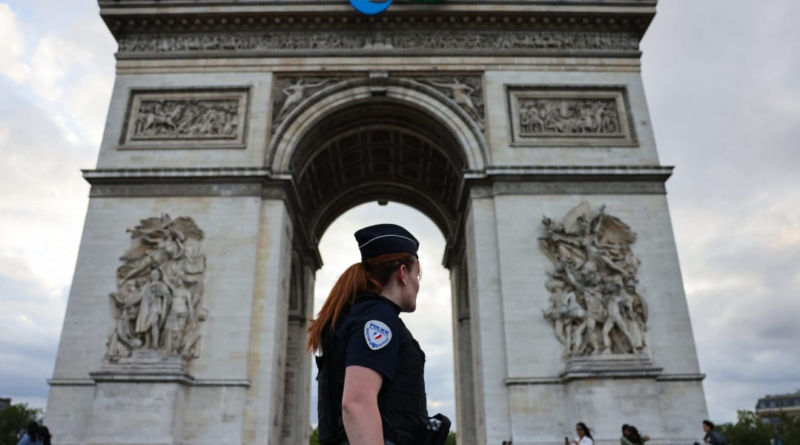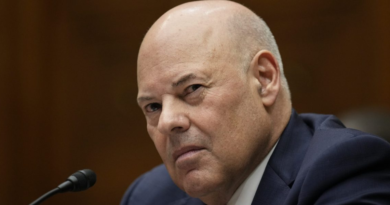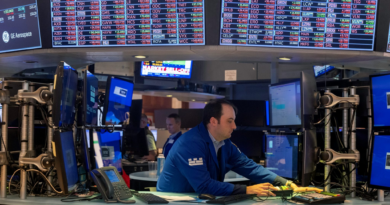How Americans can stay safe at the Paris Olympics amid global threats, according to top security experts
As the world gears up for the Paris Olympics, there’s a palpable buzz of excitement mixed with the imperative of ensuring safety for all participants and visitors. The recent arrest of four ISIS-K affiliated individuals involved in the deadly Moscow concert hall attack underscores a sobering reality: The persistent threat of terrorism looms large over global events like the Olympics. Amid heightened geopolitical tensions, the stakes for security are higher than ever, necessitating meticulous preparation to safeguard participants and spectators alike.
The Paris Olympics represent not only a celebration of athletic excellence and global unity but also a significant target for those wishing to disrupt peace and security. Past incidents, such as the tragic massacre in Munich in 1972 and the Centennial Park bombing in Atlanta in 1996, highlight the vulnerabilities that come with such high-profile gatherings. Today, with the added complexities of cyber threats and geopolitical instability, the security landscape is even more challenging.
To navigate these challenges, both U.S. individual citizens and corporations can take proactive measures to help: leveraging advanced intelligence practices, fostering public-private partnerships, and ensuring individual preparedness for prevalent threats. By doing so, we can collectively work towards a secure environment where the true spirit of the Olympics can thrive.
Individual preparedness
For U.S. citizens planning to attend the Paris Olympics, the emphasis is on awareness, personal responsibility, and preparedness. The U.S. Embassy in Paris has become an essential source for Olympic-related information, offering guidance and alerts specific to the games. Key recommendations include:
–Purchase tickets from authorized sources: With the prevalence of scams, it’s crucial to buy only from official channels to avoid fraud and ensure entry to events.
–Stay informed about travel requirements: The website travel.state.gov is an invaluable resource for Americans traveling to France, offering up-to-date information on health, safety, and travel security.
–Enroll in the STEP Program: The Safe Traveler Enrollment Program (STEP) is a free service that allows U.S. citizens traveling or living abroad to receive timely information about safety conditions. Enrolling in STEP can make a significant difference in receiving prompt alerts and guidance, especially during the Olympics.
–If you see something, say something: The post-9/11 American call to citizen action in reporting suspicious behavior in the homeland holds just as true overseas. Game officials, public safety personnel, and law enforcement can’t do the hard work of security alone. We are accustomed to keeping alert and reporting suspicious activity at home but may forget that the same also holds in the context of the Olympics abroad. It is better to report something than to ignore it. There have been many documented cases when criminal or terrorist activity has been detected and disrupted by bystander observation.
Individual preparedness is essential for ensuring personal safety during the Olympics. By following official guidelines and staying informed, U.S. citizens can significantly reduce their risk and be better prepared to handle potential threats.
Collective responsibility for corporate security
For U.S. corporations with a stake in the Paris Olympics, whether through sponsorship, participation, or sending representatives, the priority is clear: to ensure the safety of employees. The Olympic Committee’s proactive approach, exemplified by signing a Memorandum of Understanding (MOU), with the State Department’s Diplomatic Security Service (DSS), has created a foundation for corporate security engagement. Historical precedents, such as the successful security collaboration between DSS and the government of Brazil before, during, and after the Rio Olympics, demonstrate the effectiveness of proactive corporate engagement with the U.S. government.
The establishment of a Global Operations Center at the 2020 Olympics in Brazil, where dozens of countries collaborated in real-time, highlighted the power of international solidarity in ensuring security. In Paris, the same GSOC concept will be in operation. In addition, the Security Operations Center (SOC) at the U.S. Embassy is expected to serve as a critical hub for coordinating efforts and sharing vital information to OSAC Constituents and U.S. citizens. U.S. corporations are encouraged to sign up for the Overseas Security Advisory Council (OSAC) and join the Olympic Group within OSAC to stay informed and connected with the Olympic security community.
U.S. corporations must take a proactive stance by coordinating closely with the U.S. government and other international bodies. Engaging with the Department of State and joining OSAC are crucial steps. The SOC at the U.S. Embassy will provide real-time updates and facilitate coordination, ensuring that corporations have access to the latest security and intelligence information so that they can respond swiftly to threats.
Enhancing security through integrated efforts
The success of security efforts at the Olympics hinges on robust public-private partnerships. The role of OSAC in fostering that cooperation between the U.S. private sector and the Department of State cannot be overstated. In the current climate of heightened geopolitical tensions, these partnerships are more vital than ever to mitigate risks and ensure the safety of all participants.
Public-private partnerships like OSAC exemplify the power of collaborative security efforts. OSAC provides a platform for security professionals from U.S. organizations operating abroad to share timely security information and best practices. By joining OSAC, corporations can stay informed about potential threats and collaborate with government agencies to develop effective security strategies. This collaboration ensures a unified approach to security, leveraging the strengths of both the private sector and government agencies.
Resilience is equally important. In the event of an attack, the ability to quickly recover and maintain operations is crucial. This involves not only physical security measures but also robust communication and coordination mechanisms. By building strong relationships and trust between the public and private sectors, stakeholders can ensure a coordinated response that minimizes the impact of any security incident.
The Olympics are a celebration of global goodwill, peace, and unity. By working together and staying vigilant, we can create a secure environment that allows the true spirit of the Olympics to shine.
More must-read commentary published by Fortune:
The opinions expressed in Fortune.com commentary pieces are solely the views of their authors and do not necessarily reflect the opinions and beliefs of Fortune.




